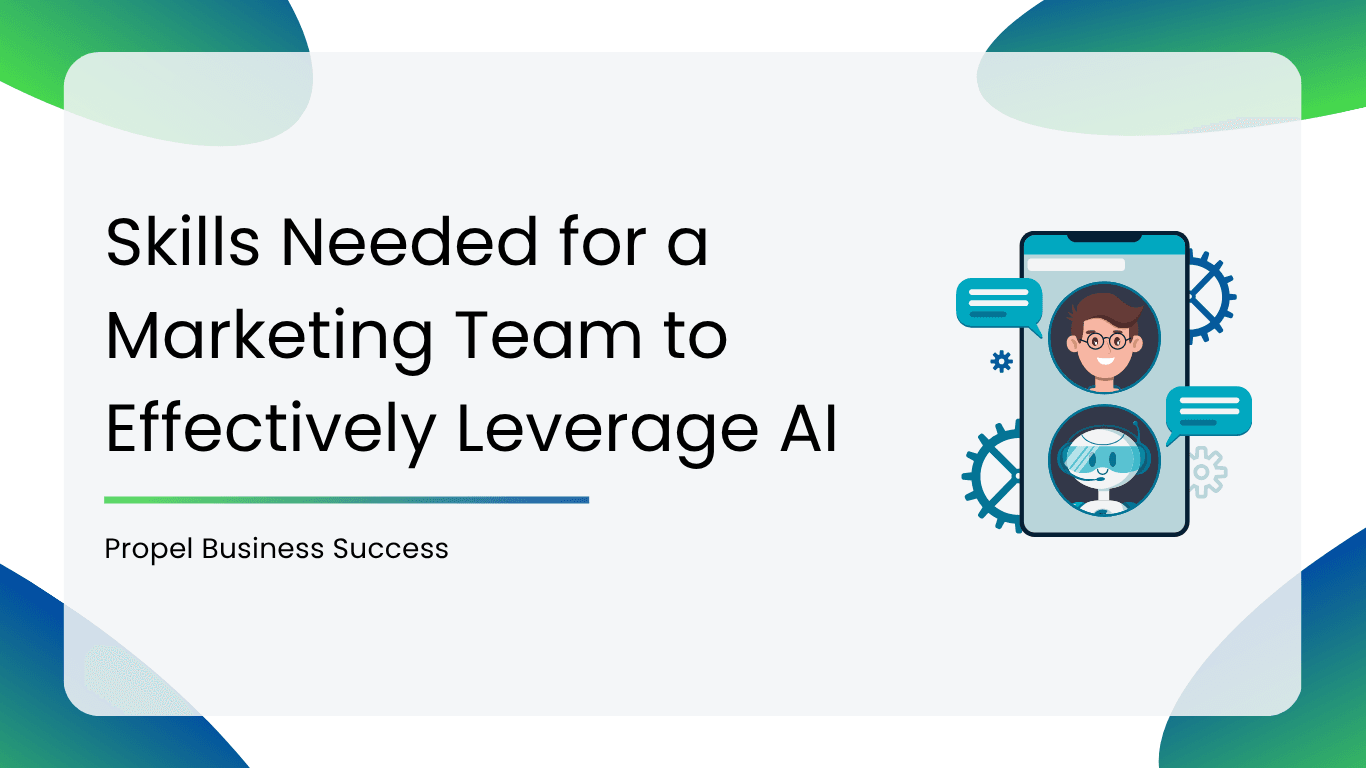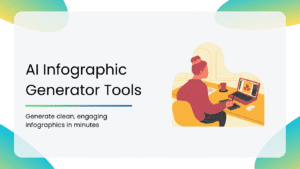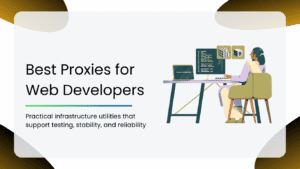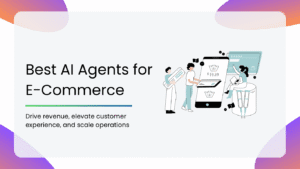In the rapidly changing world of digital marketing, the practice of incorporating Artificial Intelligence (AI) has proven to be a game-changer. As companies compete to remain at the forefront of the competitive industry, the use of AI in marketing has also become more and more critical. In order to practice the full capabilities of AI, marketing teams need to arm themselves with several key skills. In this blog post, we will discuss the chief skills a marketing team needs to implement AI effectively, how these skills can revolutionize campaigns, personalize customer experiences, and propel business success.
Key Skills for Marketing Teams to Leverage AI
1. Understanding AI Fundamentals: Before going into AI marketing tools, marketers must first study the basics of AI. These include knowledge of machine learning algorithms, neural networks, and natural language processing. Understanding these AI basics will help marketers make informed decisions on how to use AI in marketing. In addition to basic knowledge of AI, marketers can use no-code AI platforms that make the use of AI tools accessible to all. The platforms allow marketers with no or minimal coding expertise to use AI tools with ease, offering an open and accessible way of using AI in marketing strategies.
2. AI-Integrated Marketing Tools: Having the ability to utilize AI-driven marketing tools is critical in an effort to achieve maximum outcomes. Marketing professionals should be proficient in operating tools such as chatbots, predictive analytics tools, and automated content creation tools. The ability to incorporate these tools into existing work processes without any problems can significantly increase productivity and campaign success.
3. Creativity and Strategy: Whereas AI is best at data-based work, strategy and imagination are unbeatable. Marketing teams have to balance AI-powered automation with human imagination. Imaginative minds need to create innovative campaigns, and strategic planning helps ensure that AI is used judiciously to meet marketing goals.
4. Constant Learning and Flexibility: The field of AI is constantly changing, with new technologies and advancements emerging every now and then. It is very crucial for a marketing team to remain aware of the latest AI trends and be adaptable to changes in order to be successful in the long term. Fostering a learning culture within the team guarantees that team members are equipped with the latest skills and knowledge.
5. Performance Measurement and Optimization: Learn how to set critical KPIs, measure AI performance, and iterate strategies with data-driven insights. It is important to optimize AI algorithms and methods for maximum performance.
6. Experiment with No-Code AI Tools: Experiment with no-code AI platforms and see what you can do with them. Utilize such platforms to develop simple AI apps, such as chatbots or automated processes, so you can experiment without having to learn extensive coding.
7. Participate in Hands-on Projects: Find actual marketing projects where AI value can be added. Utilize AI tools to analyze customer information for insights, tailor ad campaigns for more effective targeting, or roll out personalization initiatives. Practical application is the best way of acquiring expertise.
What AI skill sets should a marketer build at different stages of their career?
1. Entry-Level Skills: At the entry level, future AI Marketing Specialists need to focus on building a strong foundation in AI marketing tools and data analysis. It’s important to master fundamental areas such as data analytics, basic machine learning, and digital marketing fundamentals. Entry-level experts need to focus on gaining practical experience in using AI tools for customer segmentation, personalization, and predictive analytics. These fundamental skills form the building blocks for consumer data analysis and support targeted marketing campaigns, acting as a stepping stone to career advancement.
2. Mid-Level Skills: As AI Marketing Specialists transition to mid-level roles, the complexity of their projects increases, necessitating a deeper understanding of AI marketing strategy and customer behavior analytics. Mid-level specialists must expand their skill set to strategically leverage AI for activities such as market research, customer journey mapping, and ROI optimization. The skill to interpret complex data sets and translate insights into marketing strategy is essential. Project management and cross-functional collaboration skills become increasingly important, as does the ability to communicate AI concepts to non-technical stakeholders. At this level, incorporating no-code AI platforms into workflows becomes valuable, allowing for quicker and more agile deployment of AI solutions.
3. Senior-Level Skills: At the senior level, AI Marketing Specialists need to exhibit superior strategic thinking, team leadership, and incorporating AI into overall marketing goals. They need to lead new ideas in AI marketing, be current with new trends, and make data-driven decisions that complement business goals. Effective team management, budget management, and communication skills are very important for success. Besides using no-code AI tools, senior specialists need to foster a culture of ongoing learning and adjusting to new AI technologies. This makes their organization the front-runner in AI-based marketing and makes them industry leaders.
How do you get the best out of AI?
The use of AI in marketing has become increasingly important, revolutionizing how businesses engage with their audiences, analyze data, and optimize campaigns. Here are key areas where AI is making a huge impact:
1. Personalization and Targeting:
- Dynamic Content Creation: AI analyzes the user’s data to generate personalized and dynamic content, making sure that marketing messages resonate with individual preferences.
- Segmentation and Targeting: AI algorithms help in segmenting audiences based on behavior, demographics, and interactions, this allows for targeted and more effective marketing campaigns.
2. Predictive Analytics:
- Forecasting Trends: AI-powered predictive analytics analyzes historical data to forecast future trends. This helps marketers make data-driven decisions and optimize their strategies.
- Lead Scoring: Predictive models identify leads with the highest potential for conversion, letting marketers to prioritize and focus efforts on the most promising prospects.
3. Customer Interaction and Engagement:
- Chatbots and Virtual Assistants: AI-driven chatbots provide instant responses to customer queries, improving engagement and providing a seamless user experience.
- Conversational Marketing: Natural language processing (NLP) lets AI to understand and respond to user queries, facilitating more meaningful interactions in chat-based marketing.
4. Automation of Repetitive Tasks:
- Email Marketing Campaigns: AI automates email campaigns, from personalized content creation to scheduling and segmentation, improving efficiency and relevance.
- Social Media Management: Automation tools powered by AI streamline social media posting, content scheduling, and audience engagement, thus; saving time and resources.
5. Content Optimization:
- SEO and Content Strategy: AI analyzes search patterns and user behavior to optimize content for search engines. This improves visibility and drives organic traffic.
- Content Recommendation: AI algorithms recommend relevant content to users based on what they prefer, increasing user engagement and time spent on platforms.
6. Data Analysis and Insights:
- Advanced Analytics: AI processes large datasets at a great speed, providing marketers with in-depth insights into consumer behavior, preferences, and campaign performance.
- Attribution Modeling: AI helps in accurately attributing conversions to specific touchpoints, providing a more comprehensive understanding of the customer journey.
7. Voice Search Optimization:
- Voice-Activated Devices: With the rise of voice-activated devices, AI is used to optimize content for voice search, making sure that businesses remain visible in this evolving landscape.
- Natural Language Understanding: AI’s natural language processing capabilities make it possible to understand and respond to voice queries, enhancing the user experience in voice-activated interactions.
8. Social Media Insights:
- Sentiment Analysis: AI analyzes social media mentions to gauge sentiment, helping businesses understand public perception and customize their strategies accordingly.
- Image and Video Recognition: AI-powered tools can analyze images and videos on social media. This provides insights into visual content performance and user engagement.
AI Skills for Marketers & Learning Resources
Real-world examples & Case Studies
1. Spotify’s “Wrapped” Campaign (Data + Personalization)
How AI was used:
- Analyzes 500+ data points per user (streaming history, skips, time of day) to create hyper-personalized year-end summaries.
- Uses generative AI to craft quirky, relatable descriptions (e.g., “You were in the top 2% of Taylor Swift listeners”).
Results:
- 60M+ social shares annually; 21% increase in Q4 subscriptions.
2. Nike’s AI-Powered Personalization (Hyper-Targeted Campaigns)
How AI was used:
- Analyzed 100M+ customer data points (purchase history, workout patterns, app usage)
- Deployed generative AI to create 300,000+ unique ad variations for the “You Can’t Stop Us” campaign
- Used computer vision to scan user-uploaded photos for style recommendations
Results:
- 30% increase in conversion rates for personalized offers
- 40% higher engagement on dynamic ads vs static ones
- $200M+ in incremental revenue from AI-driven recommendations
3. Coca-Cola’s “Create Real Magic” Campaign (Generative AI + UGC)
How AI was used:
- Built GPT-4 powered platform letting fans create Coke-themed artwork
- Trained custom DALL-E models on 100+ years of brand assets
- Implemented AI moderation to filter submissions while preserving creativity
Results:
- 120,000+ user-generated artworks in first 2 weeks
- 18% boost in brand favorability among Gen Z
- 7M+ social media impressions from AI-powered campaign
4. Starbucks’ Deep Brew AI (Predictive Customer Engagement)
How AI was used:
- Processes 400M+ customer transactions weekly to predict order preferences
- AI barista recommends products based on weather, time of day and past orders
- Dynamic pricing engine adjusts menu promotions in real-time
Results:
- 25% increase in average order value from AI suggestions
- 17% faster drive-thru times through predictive ordering
- 900,000+ new Rewards members in first 6 months of AI implementation
5. Sephora’s AI Color Match (Augmented Reality Commerce)
How AI was used:
- Computer vision analyzes 1,500+ facial attributes for foundation matching
- AR try-on sees 8M+ monthly sessions with AI-powered shade adjustments
- NLP chatbots handle 3M+ beauty consultations annually
Results:
- 80% accuracy in shade matching (vs 30% industry average)
- 11% reduction in product returns
- 2.5x higher conversion for users engaging with AI tools
6. McDonald’s Dynamic Yield Acquisition (AI-Powered Menus)
How AI was used:
- Paid $300M to acquire AI firm Dynamic Yield for menu personalization
- System processes 50+ variables (weather, traffic, inventory) to customize digital menus
- AI tests 5,000+ menu variations daily across 14,000 US locations
Results:
- 3% increase in average check size from upselling
- 20% faster decision-making at drive-thrus
- $1B+ in estimated annual sales impact
Top Tools You Can Use To Effectively Implement an AI Marketing Strategy
Enhance your marketing strategy with AI tools like chatbots for customer engagement, predictive analytics for trend analysis, and AI-driven content creation. If you’re intrigued by the possibilities AI offers, be sure to explore our other blogs, where we delve deeper into the realm of AI-powered tools:
- Top 10 AI tools to generate AD copies
- Generative AI for SEO
- 10 AI Tools for LinkedIn
- 10 Creative AI Design Assistant Tools for Marketers
- Top 15 AI Logo Design Tools
- 20 Best AI Marketing Tools to Improve Marketing ROI
In the era of quick-paced marketing today, utilizing AI is no longer an option but a necessity. Empowering marketing teams with appropriate skills is the solution to harnessing the entire potential of AI. From learning AI basics to encouraging creativity and strategic thinking, the skills that are described in this blog post are the cornerstones of a high-performing marketing team of the AI era. As the world keeps getting smarter, the integration of human insights and AI capabilities will lead to innovation, improved customer experience and push businesses to unparalleled levels of achievement.
FAQs
Marketers should understand fundamental AI concepts like machine learning, natural language processing (NLP), and predictive analytics. Knowledge of AI-integrated marketing tools and no-code platforms is also beneficial.
No, marketers don’t necessarily need coding skills. There are many no-code AI platforms, such as ChatGPT, Jasper AI, and Bubble.io, that allow marketers to implement AI without technical expertise. However, understanding AI basics helps in better utilization.
Continuous learning is key. Marketing teams can follow AI research blogs, take online courses, participate in AI webinars, and experiment with AI tools to stay ahead of trends.
No, AI enhances marketing efforts but cannot replace human creativity, strategic thinking, and emotional intelligence. The best results come from combining AI’s data-driven insights with human expertise.





